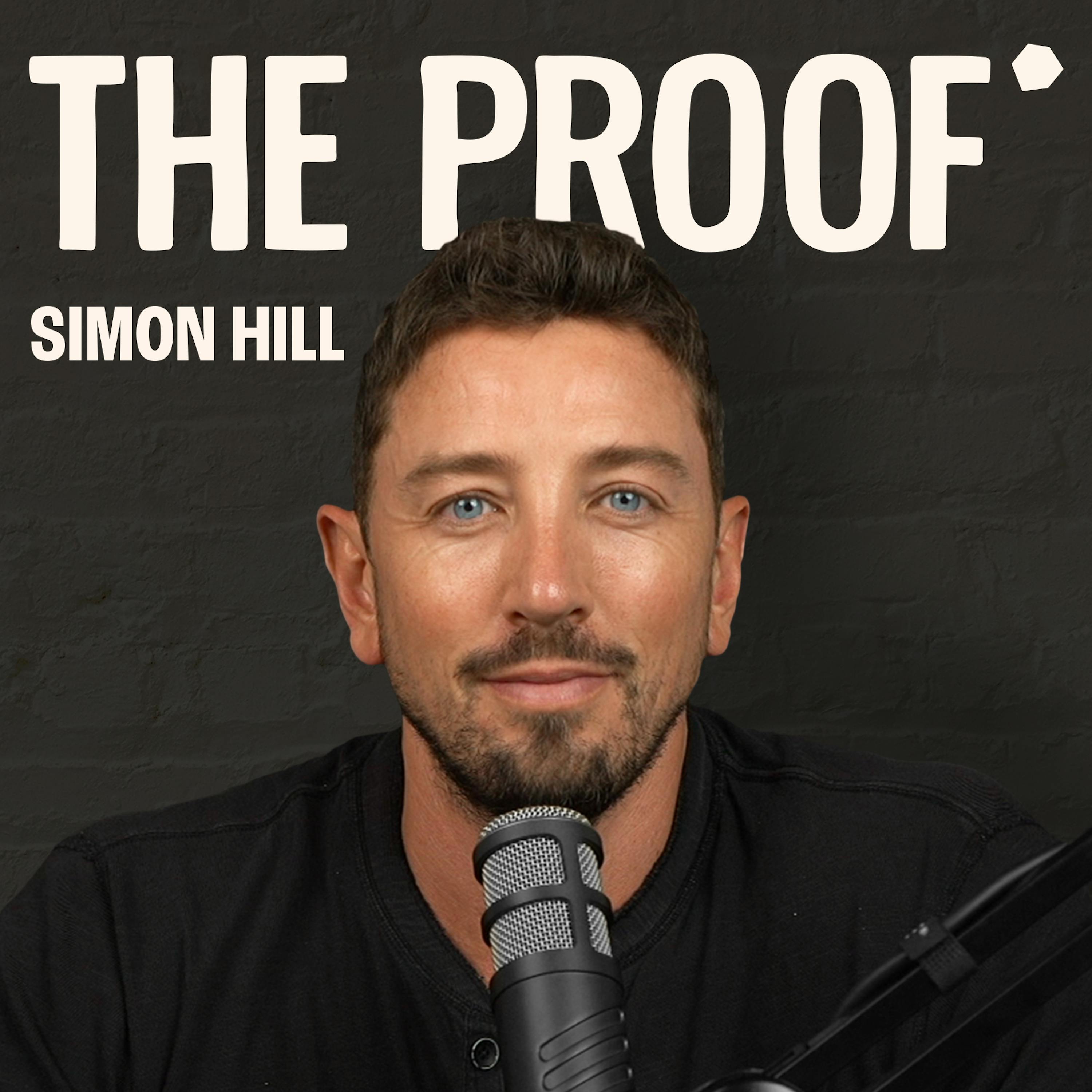.jpg)
The Plant Centered and Thriving Podcast
Welcome! If you're looking for plant-based inspiration, you've come to the right place! This podcast is here so you don’t have to feel alone on your plant-based journey. You'll hear from individuals who have taken the leap to go plant-based, why they did it, the struggles they faced, their words of wisdom for you, and how they're thriving now.
The Plant Centered and Thriving Podcast
10 Ways to Say "No" at the Holiday Dinner Table
We know the transition to a plant-based diet can be a rocky road, and the holiday season can feel like an uphill battle. We're here to guide you through the challenges, from handling family reactions to standing up for your choices. We hope to arm you with the confidence to navigate tricky situations and stay true to your food choices during the festive season. Remember, your food choices are just that - yours, and no one else's to question or judge. This episode promises to help you savor the company of your loved ones without compromising your dietary choices.
Resources from this Episode:
Holiday Survival Guide
Black Friday Deal!!!! Use this special coupon code to purchase our online course for a 25% discount: BLACKFRIDAY
_____________________________________________________________________
WE WANT TO HEAR FROM YOU!
Have a question, suggestion or comment for the podcast? Fill out form here
Plant Centered Nutrition Essential Resources:
Welcome to the Plant-Centered and Thriving Podcast. I'm your host, ashley Kitchens. I'm a plant-based registered dietitian and virtual nutrition mentor. I was raised on an Angus Cattle Farm, grew up with a lot of GI issues and used the power of plant-based eating to promote healing. Here you'll find inspiration, ideas and encouragement for your own plant-based journey. I'm so thrilled you're here today. Let's get started.
Speaker 2:Welcome to the Plant-Centered and Thriving Podcast. My name is Ashley, I'm Katie and we're together Yep, side by side. I'm recording this podcast and it's almost Thanksgiving.
Speaker 3:I cannot believe that I know.
Speaker 2:I know it's a little surreal. A little surreal. Are you looking forward to anything?
Speaker 3:Oh goodness, let's see Family maybe. Yes, I love seeing my family. We only get to see each other a couple times a year, so, yes, I'm excited too for all the camaraderie and the shenanigans that happens at my house.
Speaker 2:Yes, yes, favorite thing Do you have a favorite dish that you look forward?
Speaker 3:to oh my gosh, I think I love sweet potato casserole. Now here's the question Do you put marshmallows on top? Oh, absolutely not. No, no, do you? Yes, I love marshmallows on top. Uh-oh, gonna break out those dandies.
Speaker 2:Yes, dandies are great to give them a little plug. Not sponsored at all. We love dandies. They're vegan marshmallows, no animal bones or anything, so really great.
Speaker 3:So, yeah, we get to enjoy it too. Yeah, what's your?
Speaker 2:favorite. I actually love sweet potato casserole too, oh yeah, and I love a good like pecan, like oak crumble on top, oh, I do like that too.
Speaker 2:Yeah, that's my favorite. I just love mac and cheese and anything that comes in like a pie show, even if it's something savory. We were watching I don't know if you all watched the Great British Baking Show Totally. We got into that a couple years ago and Nick and I did, and we were like why have we not watched this before? It's just so, it's just a wholesome like sweet show. So anyways, they had pie week this was a while ago now and they made savory pies and Nick was like I might make some savory pies for Thanksgiving this year. So I'm kind of curious to see if he comes up with something or not.
Speaker 3:They have so many things that they do with pastries. Yes, yeah, and you know, pillsbury Crescent Rolls, accidentally vegan.
Speaker 2:There you go. Oh, we should do a podcast on that. All these things that are vegan, that you don't know about oh, yes, yes, there's a long list. So Pillsbury Crescent Rolls good to know.
Speaker 3:Not the buttery Gotta make sure it's not like the extra buttery kind but just the classic accidentally vegan.
Speaker 2:Yum, there's a lot that you can do with those too. My goodness, so tasty. Yeah, agreed. Well, I'm excited for Thanksgiving. And after Thanksgiving comes Black Friday, which I used to be, katie.
Speaker 2:I used to be in Black Friday, goer outer like wake up really early in the morning with my family, I know, fight for parking spots like all the things, and we really just did it for the fun of it. I didn't really even buy anything and of course, I was younger too, so there's that, but it was a lot of fun. And but now I'm like, oh my gosh, I wanted to stay in and not avoid it Like the cops. Yes, but if you're staying in and not going out, we do have a special deal on our course Plant Based in 30 Days which is helping you go from eating the standard American diet to a fully plant-based diet, if that's what you're wanting to do, especially, and you can do it in 30 days, and it gives you everything that you need to make that transition. This also makes a great gift. Or, if you want to do it for yourself, you can do that. If you've been thinking about going plant-based, this is your sign, I know.
Speaker 3:And we love a good Black Friday deal. That's what I do enjoy, so what's our deal?
Speaker 2:So the deal is 25% off off of the already discounted price, but we will include that in the show notes so you can check that out and use the code Black Friday for 25% off, plant-based in 30 days.
Speaker 3:I love that idea of giving it as a gift, because then they don't really have any more excuses. You have that friend or that relative that has been talking about it or been very curious about it. You can kind of slip this in their email and now they have no excuses. It's true, they can start off 2024 the plant-based way. So I love that idea. Oh goodness, 2024. That's wild.
Speaker 2:I know, yeah, so, yeah, so we will include that, like I said, in the show notes and, other than that, we hope you enjoy your Thanksgiving, if you're celebrating it this year. If not, we hope you enjoy your week and we just appreciate you so much for being here, whether you're returning to this podcast or whether this is your first time here, welcome. We just appreciate you so much. And, katie, we have, as of right now, 82 reviews on the podcast.
Speaker 3:So excited. We just had an amazing one. We get so many Instagram comments. We got one a couple days ago that was like they binged listen, which makes me so happy. Who cares about Game of Thrones? Binge, our podcast. I love it.
Speaker 2:So today we have a special episode for you because, with the holidays coming up, we do want to talk about just how to navigate family. I think we did this a little bit last year, kind of almost like a survival guide to the holidays, but we're going to do it a little bit differently this year. We're just going to talk about how to gently, politely, kind of decline non-plant-based foods. So, especially if this is your first holiday where you are plant-based Congratulations, that's so exciting. I know everyone listening right now if it's not their first, they're like cheering you on because they know we know how the first holidays can go. It can be a little rough, especially if you're plant-based and going into a non-plant-based holiday meal. So we're going to just talk about kind of how to navigate that situation and also how to say no. Actually, let's do a little role play. I am coming home for Thanksgiving and my Aunt, katie, is going to. Well, you take it away, Katie, oh.
Speaker 3:Ashley, I've been so looking forward to seeing you. All year I have made my special mac and cheese recipe and I am so excited to watch you take this first bite. Here you go.
Speaker 2:Oh wow. Thank you, aunt Katie, for making my favorite dish. I have always loved eating this dish every Thanksgiving. Now I'm going to wait until I'm a bit more hungry. That way I can fully enjoy it and savor the flavor.
Speaker 3:And see, and see.
Speaker 2:And guess what? I ain't going to eat it. No. So that's kind of the idea is just politely saying like, oh wow, thank you so much, you made my favorite dish, especially if this is something that you've historically enjoyed over and over again for every holiday. But just saying, like you know what, I'm going to wait until I'm a bit more hungry, that way I can really really enjoy it. That's kind of a way to push off eating the food. And then we're going to talk about ways where you can just flat out say no, thank you, yes.
Speaker 3:Yeah, I love that. A lot of it is just dodging and weaving, just keeping the peace. No one wants to be that person that kind of brings everybody down. So I think the tips and tricks that we're going to give you today are just going to help you navigate in a nice diplomatic way.
Speaker 2:Yes, this can be a challenge and we say this like going back to the holidays, going to really any function where there is food, and you're trying to transition to a plant-based diet. You know you might be worried about what people will think, what they'll say, what they'll ask, because who knows what kind of questions you're going to get. So it can be helpful to come prepared to have a little arsenal of, like, what you're going to say, how you're going to respond, or maybe you just want to go in and expect the best to happen and sort of go with the flow. You can absolutely do that too.
Speaker 2:What can be a little challenging is change is hard, not just for you, but it's also hard for other people too. You know, when you're coming home and they want to make you these foods that you've always loved, it can be challenging for you to say no and for them to and again, you're not responsible for their reactions or their emotions, but it can be hard because they might feel a little offended or like really disappointed that you're not eating the foods that you used to once love. So change can be hard for you, absolutely, but then also maybe for the people, your loved ones, who are making food as well.
Speaker 3:Absolutely. And I think this is probably one of the biggest questions that we get around this time of year is people are just hesitant to Tell people that they are making these changes. They're not really sure what answers they have to those kind of difficult questions. So again, I hope this episode helps kind of curb that and gives you some Tools to be confident going into the holidays. Yeah.
Speaker 2:And it's okay if you have trouble explaining yourself, or it's also okay if you don't want to explain yourself. It is okay if you're in a situation at a dinner table and someone's kind of asking you questions about your lifestyle and you're like you know what. Let's actually I would love to have this conversation Later and kind of just maybe focus on family. That can be helpful to just maybe like, hey, I'd love to have this conversation, but let's do it after the dinner table. But maybe you also have a family who's really understanding and you don't have to really explain yourself. So every situation is kind of different. I know it's been Different for me. Heck, I've been playing bass for 11 years now and I still get questions. Yeah, that's it.
Speaker 2:I'm like really I think I said last year that one of my relatives was trying to convince me to eat a cheese. It was like a cheese, lasagna or something and I was like I'm not gonna eat that, like I know it's vegetarian, but that's not the point, I'm vegan.
Speaker 3:Thanks but no thanks. So we're gonna give you some tips and tricks on kind of thinking about food and your food choices and what kind of tools you can use. Pre-planning, kind of understanding why you're making the choices that you're making and Just kind of helpful reminders that there's no right or wrong way to approach the way you eat.
Speaker 3:So I think number one is that Remembering that you deserve to be treated with dignity and respect. So no matter what, no matter if it's your great-aunt Sally or your great-aunt Katie, you know, if they're trying to sway you from your Internal morals or kind of the guidelines that you set up for how you're gonna eat this year, you know you deserve to be treated Nicely and so that is kind of a bare minimum, I think, and as a people-pleaser firstborn, that can be really really hard, and the more you do it, the more you kind of use this as a reminder. Internal dialogue, like I deserve respect, and that includes the choices that I choose to make for my life, and that is perfectly okay and does not take away from the love that you have for your family. Yep, absolutely.
Speaker 2:Yeah, cuz your food choices are your food choices. There is some reason or another that you're choosing to eat this way. I mean, truthfully, there should be no question about, like, how you're choosing to eat. Like, they're your food choices and that is okay. Just like you wouldn't question someone with a peanut allergy, well, why aren't you eating my peanut butter pie that I made? Hello?
Speaker 3:So I love framing it like that, because that way it sounds like a little bit ridiculous, right?
Speaker 1:Yeah, she wouldn't.
Speaker 3:So why would it? Why would it be any different? So I think that's such a good way to to think about it, yeah.
Speaker 2:Yeah, and it really isn't your job. This is something that Katie and I really both like to kind of keep in our own minds. It is not your job to make people happy by eating their food. It's not your job to make other people happy by eating their food. I think that's an important thing that Katie and I both tell each other. I know, I know.
Speaker 3:But I mean, think about it, especially these Thanksgiving foods that tend to be pretty meat heavy, dairy heavy. If you haven't eaten that for a while, I mean that could literally compromise how you feel after the meal, if you decide to break down and indulge your family versus kind of stepping away from how you're feeling. So it's really not our job to sacrifice our own well-being in order to make our family happy, and I think it comes down to our family loves us and even though they may put up a little bit of a fight, in the end they want what's best for us, and so I think we're going to teach you kind of how to communicate that in a nice diplomatic way.
Speaker 2:Yes, oh my goodness. And setting boundaries with family is OK in many respects. Of course we're just talking about food here, but it goes to a lot of things as well, and it can be challenging to set those boundaries, but it's also important as well, and I think you're going to walk away feeling much better, having set those boundaries and kind of establishing this is what I eat and I'm not going to budge on it. This is a total side note, katie, but I was going to. You know how turkey is a big part of Thanksgiving meals.
Speaker 2:Growing up, I remember eating the turkey just to appease other people or just because it was there on the table, and I finally came to a point this was obviously well before I was plant-based or vegan. I came to a point where I was like why am I eating this? I don't even enjoy eating turkey. It's not good, it's dry. I don't even know why we, these poor turkeys, I don't even know why we have them. To me it's not worth it. And so I just stopped eating it and I would just fill up my plate with sides and I enjoyed my Thanksgiving so much more because of that. And I think this kind of falls into place with some of these foods that you can still eat them, but you're just choosing not to because you don't want to. Maybe it's like the turkey, you're like it's not even worth it, it doesn't taste good. Or maybe it's just like this doesn't align with my values anymore and I don't want to have it. So a lot of different reasons there.
Speaker 3:It's a good reminder that this time of year we kind of get wrapped up in tradition, and so I think it's a good opportunity before you go is to really say, okay, what traditions do I want to partake in? And is it okay to say to heck with tradition and start your own? And we say, yes, it is yes, yes, we do. So Ashley's like I'm going to skip the turkey at Thanksgiving. Yeah, that is her prerogative.
Speaker 2:Yeah, I think Katie and I have said before, just because that's how you've always done something doesn't mean that that's how you need to always do something. You know moving forward.
Speaker 3:So yeah, and I think it's so good to hear that out loud. It like gives us permission to go against the grain. Yeah, sometimes you need to hear that. So we're here.
Speaker 2:We're telling you it's okay, we're cheering you on for a far too. Having a one-on-one conversation with your host prior to your visit can be helpful. That is something I think we talked about last year. It's like just how to clearly communicate to whoever's hosting the meal that, hey, I am plant-based. Is there any way I can bring some dishes or help you make the food prior to everyone arriving? So any way that you can maybe communicate with a host can be helpful if that's what you want to do. I just explained that they have made some of these choices, some changes with my meal, and I would like to lighten your load by, like you, know helping you out with the meal if possible.
Speaker 3:So that's an option as well, yeah, I love that tip because you ensure that you have something to eat as well as you know helping out your host, that they're not kind of running around how do I make a vegan sweet potato pie, I don't know. So you help them out a little bit, yeah.
Speaker 2:Yeah, I was in California a couple of weeks ago and we had a. It was my friend's birthday and she got this like delicious raw vegan gluten-free cake. It was insane and we shared it with other people and they had a hard time. They're like wait, this is vegan. Like you know they couldn't wrap their heads around. But it doesn't, it doesn't. I think the one of the person was like oh, it tastes normal.
Speaker 1:You know, you put quotes around normal.
Speaker 2:Oh geez, I mean, it doesn't taste any different, and that's the same for a lot of these like Thanksgiving dishes, these traditional dishes. It really doesn't taste that different if you use vegan ingredients. So you know there's that too. So let's go through maybe some of these responses and if one resonates with you, we recommend, if you're in a safe place, to do so, like writing it down or like putting it in your phone. That way, if you want to use it you can, whether it's for Thanksgiving or for like another holiday coming up for your birthday, whatever that is.
Speaker 3:Oh yeah, it works for any. Anytime you have family getting together, that's a good point. Yeah, so we have 10 responses that you can use when you're feeling a little bit of pushback from family enticing you to engage in some maybe meat or dairy eating. Our number one response I'm too full to try it, but I would love the recipe. So I love this one because, again, it's not a good idea to do this A lot of these. It just gives you a very diplomatic way to kind of push it off until later. But it still has that little kind of kiss of love and interest and curiosity because you can show appreciation. Oh yeah, give me the recipe and then maybe you can veganize it later and bring it next year.
Speaker 2:Yes, wouldn't that be awesome. That's a good idea. Yeah, I love that. I would love some another time. Right now I'm too full. So it's kind of another way to say it is yeah, I would love to try this at some point, but right now I'm just too full to give it a try. And heck, even if you're not too full, you can still say it. So, I'll fudge it a little bit.
Speaker 3:But I think this gets into kind of like just pressure of eating past fullness. Around the holidays it's like you know, you try to like shove as much stuff on your plate. That's kind of just the American way. And so this gets into intuitive eating as well, that you don't have to keep going until everybody else is satisfied. You go until you are satisfied. Yes, yep, absolutely. So. I love this one. I would love to, but I can't take another bite without feeling uncomfortably full. So this one's a little bit different, because we're starting to kind of let them know that you are past the point of being comfortable or feeling good. It's really hard to argue with that. I think I agree.
Speaker 2:Yeah. So number four, you can simply say no thank you. There is nothing wrong with just being correct and wanting to say hey, you know no thanks. And then, number five, you can say no thank you and then add on what I've had was delicious and I feel so well fed I love that one yeah. So what I've had was just enough. You know I feel great, but no thanks.
Speaker 3:Yeah, and you're being appreciative, you're like you already fed me so good, like that's enough. Number six I bet you are right in that the food tastes delicious, but I will have to pass, as I'm very satisfied with what I have eaten. So again along the same lines, just a little bit different to verbiage, because you might have to use several of them in one Thanksgiving meal, that is so true. So sometimes the same intention, but just different verbs. Yeah, they're different verbiage, yeah.
Speaker 2:Number seven, which is what we said earlier, was wow. Thank you so much for making my favorite dish. I'm going to wait until I'm more hungry to fully enjoy it.
Speaker 3:Yeah, so another good push off for now. Number eight no, thank you. I've been listening to my body and I know that I would not feel good if I ate that. So again, a little bit more kind of stronger in your intentions, letting them know that making that decision would not benefit you in that moment.
Speaker 2:Yep, and the reason why we're using a lot of fullness, you know, talking kind of about how you feel is because people can't really argue with that. You know if you're too full or if you know you're not going to feel well if you eat something. But really there's no argument in arguing and how you feel, because how you feel is how you feel, it's your body and you know your body best For sure. Number nine I may come back for some, but right now I'm satisfied. So just kind of reiterating that I'm feeling good. There's no need for me to eat anymore right now.
Speaker 3:Number 10,. I have been trying to listen to my body recently and I can tell I am full and should not eat another bite. So again, that kind of same language is very important, that this is what my body is telling me and it's telling me I'm done, I've had enough.
Speaker 2:I think we actually had one at one point that was pretty direct and that like, if I eat anymore, I'm going to eat past feeling comfortably full, and you wouldn't want that for me, would you Something like that?
Speaker 2:And I remember thinking like, oh wow, that's a good one. So For same with you know, dairy or meat, especially if you haven't had it in a little while, or you know, it kind of upsets your stomach. It doesn't make you feel well that's another way to say it Like I just I know I've been trying to listen to my body I don't feel well when I eat these foods and if I do eat it, I probably won't feel well and you wouldn't want that for me. I know that. Yeah.
Speaker 3:And then one of my favorite tips is just blaming on your doctor.
Speaker 2:Yes, oh, my goodness, blame your doctor or your dietitian.
Speaker 3:And again that kind of takes the argument out for those persuasive relatives.
Speaker 2:It's like, yeah, doctor's orders, yeah, yes. So if I was challenging Katie and being like why are you like? Why are you only eating plants? Doesn't make any sense. People can't live off plants. Plants do not have all the protein. No, you're not getting enough protein, are you sure you know?
Speaker 3:Katie could say like a doctor said I should eat this way.
Speaker 2:And usually people. This is like Dr Doug Lyle. We've talked about him, I think, a couple times. He's like a vegan psychologist and he's researched this and he said people typically don't argue with like doctors, orders, and so when you use that reasoning then it's like oh, conversation shut down. I love those tips. Yeah, I do too. I really do. Hopefully we won't have to use them, but it's always good to have them, like we said, in your arsenal just in case you need to.
Speaker 2:And then one thing that Katie and I do talk a lot about as well is that there really is power in having a choice when it comes to food, and with plant-based eating, it can look restrictive, I know, from on the outside. Looking in, it looks like well, but you can't have this, you can't have that, you can't have grandma's pie, you can't have aunt Sally's mac and cheese. But really, in reality, you can eat whatever you want. You really can. I mean even someone with a peanut allergy, like we talked about earlier, they could eat peanuts. Now that would be incredibly harmful to their body and could potentially lead to death. But ultimately we can eat whatever we want. And so I think also remembering that is like you're not going into this saying like, well, I can't have that, I can't have this, it's more of. There is a choice in that. You can have what you want. You're just choosing not to eat certain foods because that doesn't align with your body or your values anymore.
Speaker 3:Absolutely, and I think, especially in the plant-based vegan world there's a lot of pressure to kind of be a perfect vegan, and we've talked about this before. Regardless of that side or the other side, it's up to you to kind of set up what you want your holidays to look like. If you are plant-based 100% of the rest of the year, but on Thanksgiving you do want to have a bite or two of aunt Sally's special mac and cheese that she makes, I think that's okay if that's what you want to do.
Speaker 2:That's true. I do know some people who are plant-based, who kind of go into these holidays just being like I'm going to be a little bit flexible and I'm not going to worry about it, and that's okay too. Again, what matters most is that it aligns with you and that you feel good walking away from the choices that you made. And maybe sometimes you don't walk away feeling great and you're like, okay, well, now I know for next year or for the next holiday meal or for the next birthday, that I can do something a little bit differently. That's going to feel better to me, absolutely.
Speaker 2:Maybe you've been plant-based for a while. It can be hard to go in and there's a turkey sitting in the middle of the table or something that you just don't agree with. That can be really challenging. But just like you don't want to be judged for your food choices, do your best, as best as you can, to not judge others for their food choices, because you never know what your example is going to set for someone who may be a bit curious and seeing you eat plant-based, have a delicious meal, you just never know what kind of impact that's going to have. It's planting seeds again.
Speaker 2:I never thought I would go plant-based Heck. No, and here we are today, and so I think that's always a good reminder of you just never know what your example is going, what kind of impact it's going to have on somebody else.
Speaker 3:When and now. Just change the subject, yes, or bring up someone else's drama. Did you hear my sister?
Speaker 2:Well, good, it sounds like we're in for a good holiday season. Coming up Excited.
Speaker 3:I'm pumped and I'm so excited for all of you out there that are going into your first one. That's very, very exciting. So we're here for you if you have questions. We want to hear how it went If you used some of these tips. I would love to hear that. Yeah, I'd love to hear the stories. Agreed.
Speaker 2:Agreed, all right, I think that's it. Happy Thanksgiving, happy holidays. We'll catch you on the next episode. Bye.
Speaker 1:Thank you so much for listening to the Plant-Centered and Thriving podcast today. If you found this episode inspiring, please share it with a friend or post it on social media and tag me so I can personally say thank you. Until next time, keep thriving.
Podcasts we love
Check out these other fine podcasts recommended by us, not an algorithm.

The Rich Roll Podcast
Rich Roll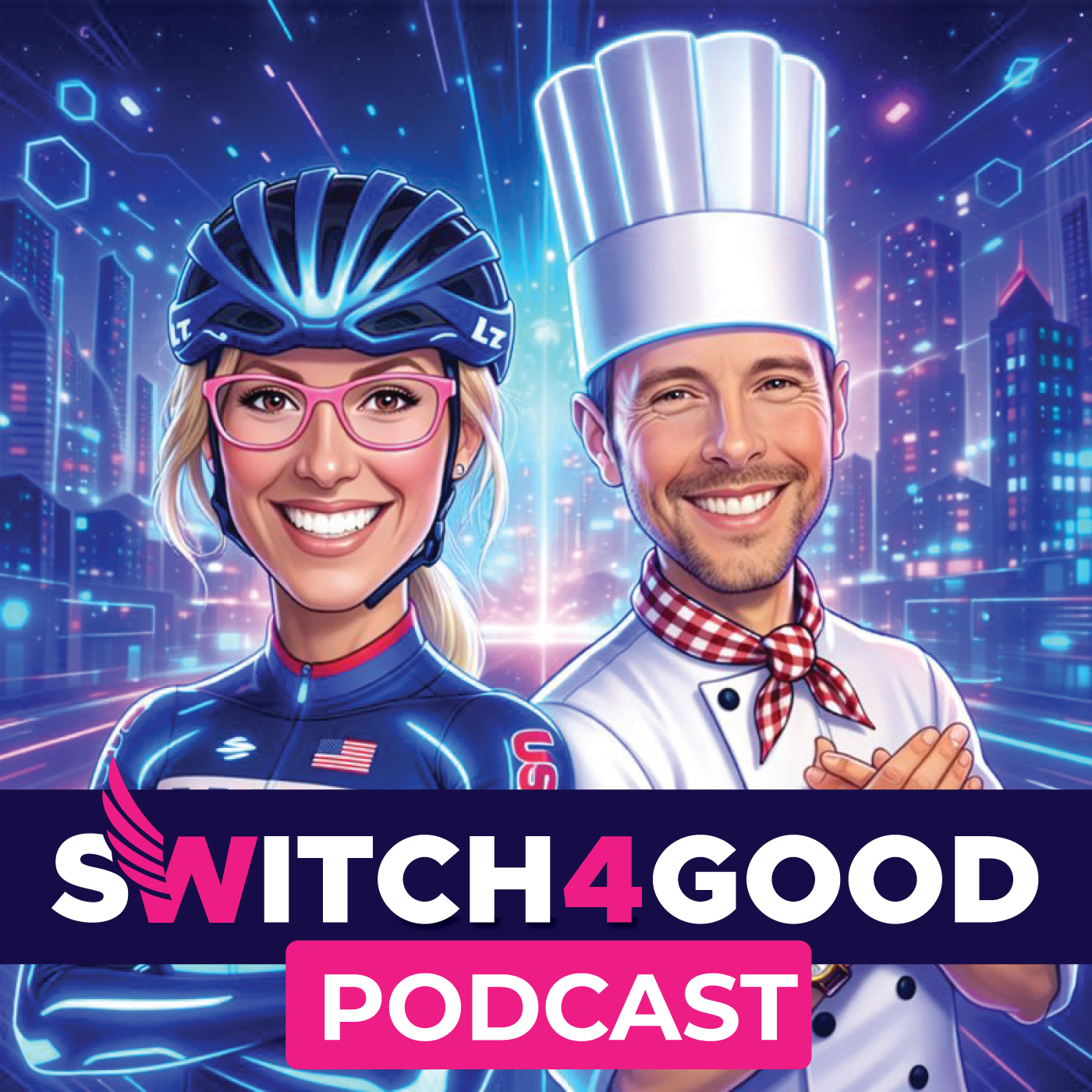
Switch4Good
Dotsie Bausch and Raphael Wrobel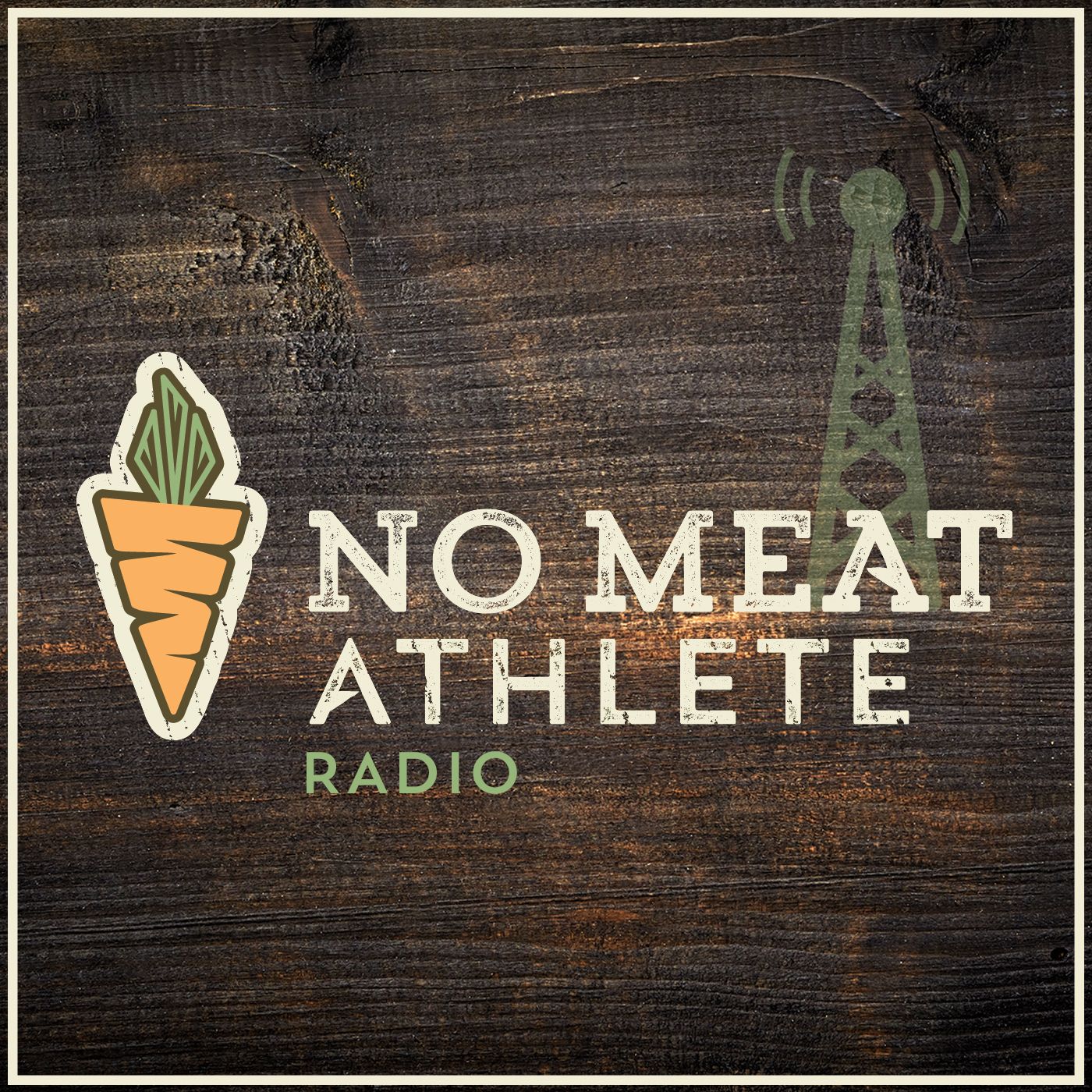
No Meat Athlete Radio
Matt Frazier
The Outlier Health Podcast
Matt Frazier, Matt Tullman, Isabelle Caputo, and Doug Hay
Plant-Powered People Podcast
Toni Okamoto and Michelle Cehn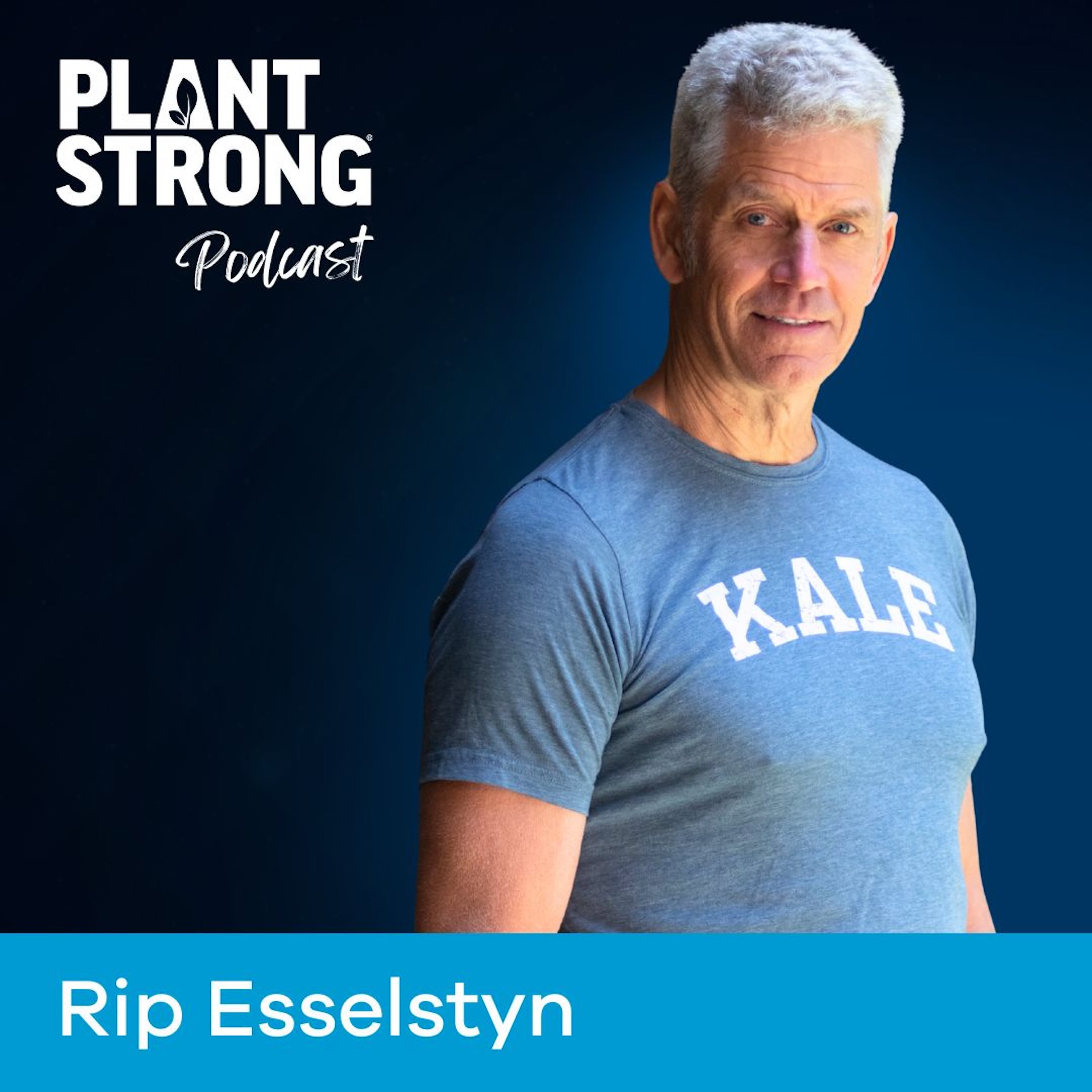
PLANTSTRONG Podcast
Rip Esselstyn
The World Vegan Travel Podcast
Brighde Reed
Vegan Kids Nutrition
Karla Moreno-Bryce, MDA, RD, LD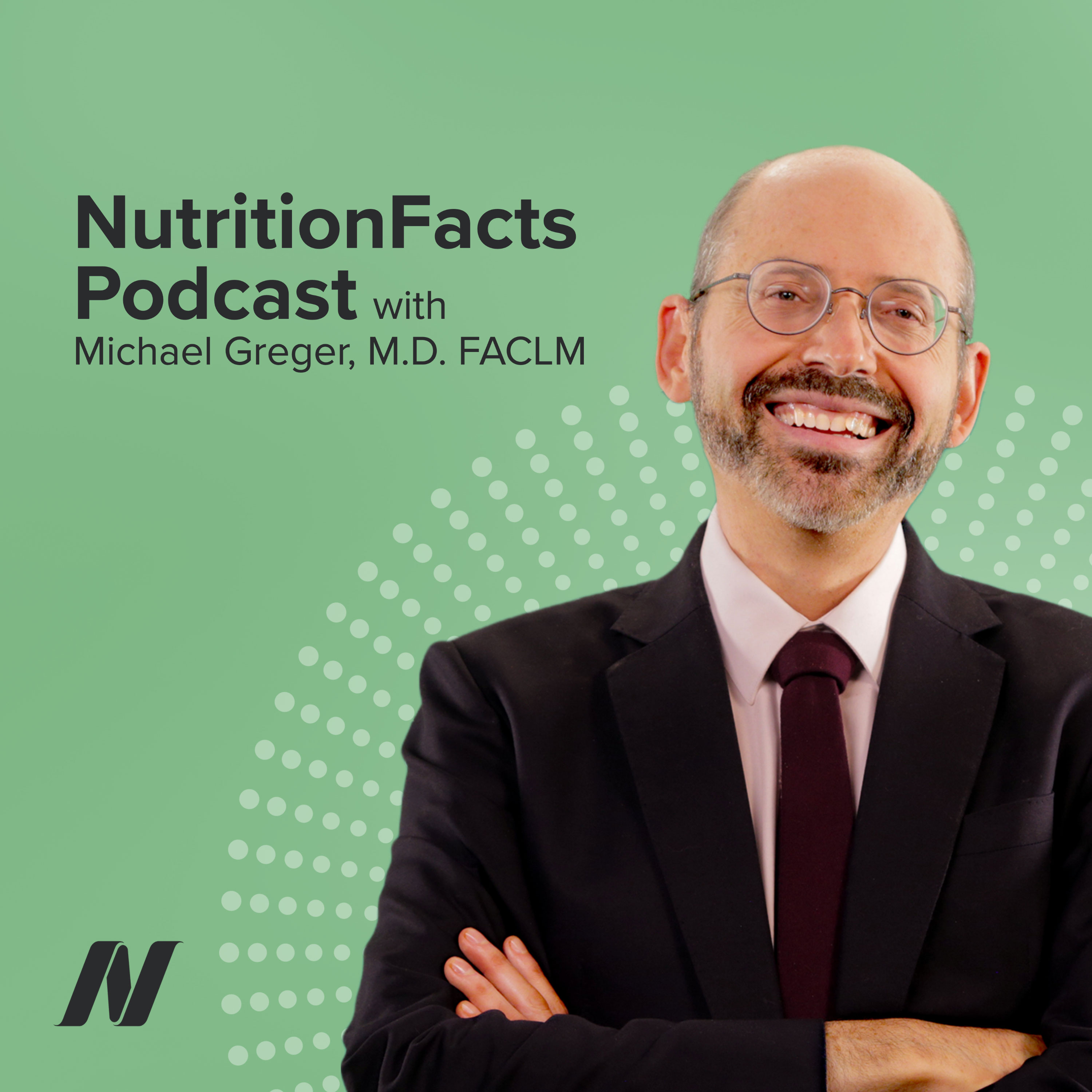
Nutrition Facts with Dr. Greger
Michael Greger, M.D. FACLM
The Plant-Based Morning Show
Matt Frazier & Doug Hay, presented by ComplementThe Plant Based News Podcast
Plant Based News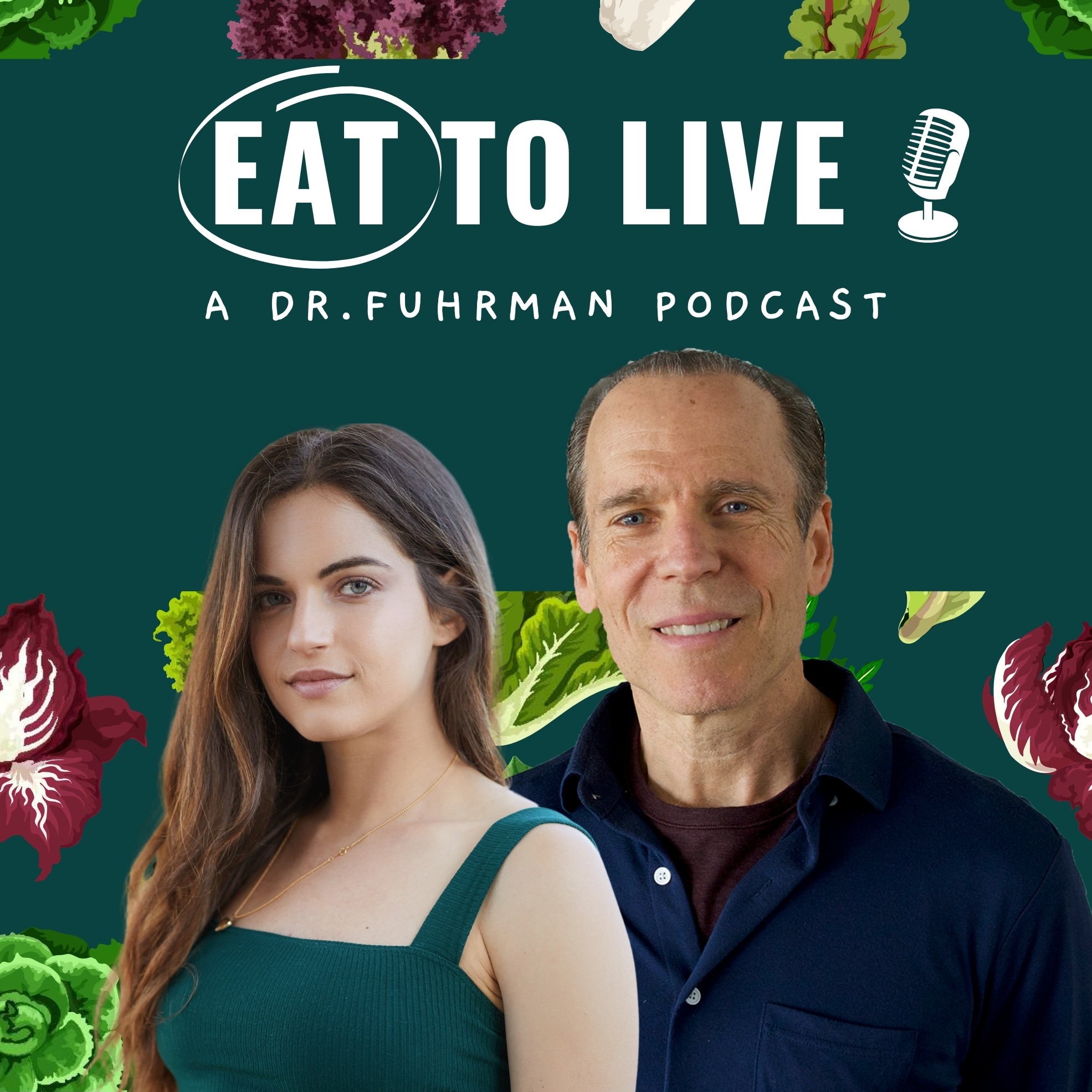
Eat to Live
Jenna Fuhrman, Dr. Fuhrman